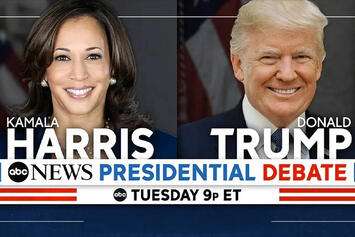
In the coming US presidential election, the key battleground lies with the working and middle classes. The professional elites and the dependent poor are all but guaranteed to back Kamala Harris and her sidekick, Tim Walz, while rural voters are certain to jump on the ever wilder Trump train.
In this awful contest, the decisive key lies with the populist masses, particularly in the swing states, suburbs and among minorities. This notably includes Latinos and even African Americans, especially young males. Yet despite repeated assertions of their concern for the hoi polloi, neither party, nor any of the candidates, offers anything like a truly populist programme.
There’s nothing in the proposals made by Donald Trump or Harris that address the fundamental problems of the concentration of wealth, the oligarchy’s control over the means of communication, poor standards in education and decaying industrial infrastructure. We are confronted, amid the insults and paranoid projections, with half-baked giveaways to specific constituencies. Promises are made to retirees, students, small businesses and aspiring homeowners. But there is little that could provide long-term prosperity for most Americans.
Trump was always an odd avatar for populism. He’s an inheritor of great wealth, who made his money – and also lost it – building luxury housing, gilded casinos and golf courses. Yet he has made an appeal to the working class, as well as to many suburbanites. This was achieved largely on the basis of resentment against the progressives, who many Americans see as threatening their jobs, their neighbourhoods and their basic values.
Trump’s success was not, as progressives meow, primarily based on racial animus or religious fanaticism. Rather, it came from his appeal to working-class voters, including many who voted for Barack Obama. In the first three years of Trump’s administration, before the pandemic, middle- and working-class people did better economically than under Joe Biden – even despite the billions of dollars of public spending by the current administration. The economy has slowed and manufacturing employment, despite Democratic claims, is now declining.
Yet the notion that Trump would be a keen champion of working- and middle-class interests seems a bit far-fetched. His funders tend to be oligarchic billionaires like Elon Musk and various other well-endowed oddballs, from wrestling entrepreneurs and inheritors such as Timothy Mellon. Much of his strongest backing comes from groups on the far right, which are more concerned with peripheral issues like transgenderism, opposing affirmative action and the war in Ukraine. Even if voters agree with these stances, culture warring alone can’t meet the economic aspirations of the masses.
Read the rest of this piece at Spiked.
Joel Kotkin is the author of The Coming of Neo-Feudalism: A Warning to the Global Middle Class. He is the Roger Hobbs Presidential Fellow in Urban Futures at Chapman University and and directs the Center for Demographics and Policy there. Learn more at joelkotkin.com and follow him on Twitter @joelkotkin.
Photo: via Digital News Italy under CC 4.0 License.












